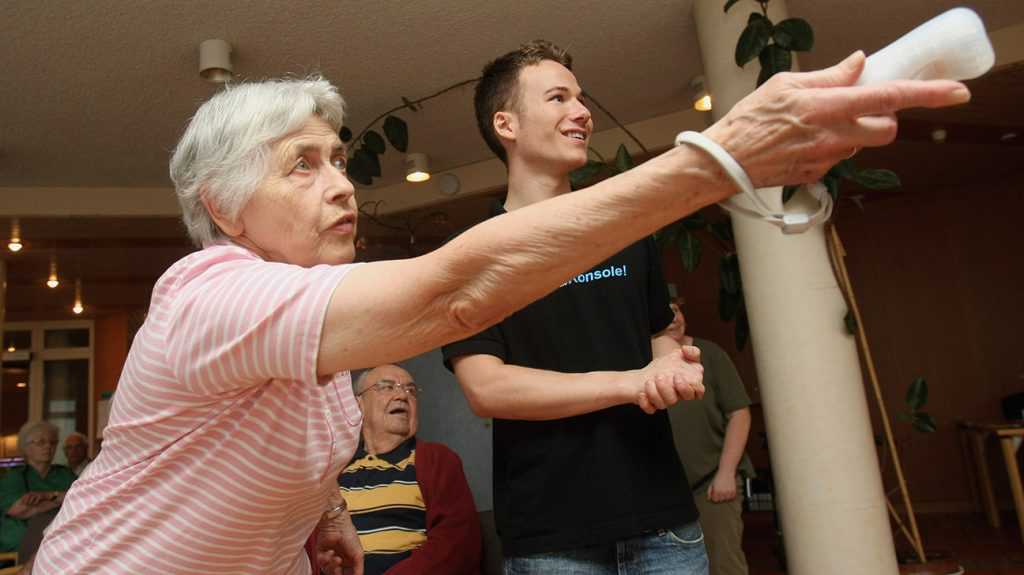Pilot study finds ‘exergaming’ may improve dementia symptoms
19 April, 2021

Dementia is a condition that impacts memory, cognitive and behavioral function, and everyday living, generally in older adults.
Currently, there are limited treatment plans for dementia, although many clinical trials are underway.
In a pilot study, researchers used exergaming, which combines exercise and video gaming, to train a group of older adults with dementia residing in long-term care facilities.
The researchers found that exergame training improved lower extremity and cognitive functioning, step reaction time, and symptoms of depression in this group.
Worldwide, approximately 50 millionTrusted Source people have some sort of dementia. This condition could cause a decrease in cognitive function, memory, and the capability to perform daily activities.
Although dementia primarily influences older adults, it isn't a normal portion of the aging process.
Currently, there is no known cure for the problem. However, clinical trials are underway to research drug development, together with nonpharmaceutical and care-related interventions.
As there are few treatment plans, Belgium researchers, in collaboration with Eling D. de Bruin of ETH Zurich, investigated whether exergamingTrusted Source, an activity that combines fun exercise with cognitive training, could improve dementia symptoms in persons with the condition.
For the study, scientists used Dividat Senso, an exergame that Dividat - a spin-off company of ETH Zurich - developed.
Building on a previous study
In 2015, ETH Zurich researchers discovered that older people who engaged in training that included physical and cognitive exercises demonstrated improved cognitive performance and executive function. However, the analysis was limited since it only involved healthy individuals.
Therefore, scientists wished to expand on these earlier findings by including persons with dementia.
Investigating exergaming and dementia
The researchers recruited 45 participants with severe dementia symptoms from two Belgian long-term care facilities to commence the randomized control trial. The common age of the participants was 85 years.
They divided the participants into two groups and assessed them all using a battery of tests to determine baseline functioning. The team repeated these tests following the completion of the trial.
One group performed exercise sessions with the Dividat Senso machine for a quarter-hour, three times weekly for 8 weeks, while the other group watched music videos of their choosing.
The Dividat Senso can be an exercise machine that includes a screen and a floor platform with four lighted fields that are sensitive to pressure. The sensors identify steps in four directions: left, right, top, and bottom.
As participants see patterns appear on the screen, they attempt to duplicate that sequence on the platform with their feet.
The device automatically adjusts to support the participant’s ability and measures steps, weight displacement, and balance.
The results showed that the participants who engaged in the exergame had improved gait speed, cognitive function, mobility, balance, and step reaction time. They also saw improvements in leg function and depression symptoms.
The researchers suggest that the improved reaction time and leg function may increase the ability of older adults to feel and react to situations that bring about falls.
Conversely, the cognitive ability and reaction time of the participants who watched music videos continued to decline.
“For the very first time, there’s hope that through targeted play, we will be able not only to delay but also weaken the symptoms of dementia.”
- Eling D. de Bruin
Notable limitations of the analysis
Due to the small sample size within their study, the researchers indicate the need for more comprehensive trials comparing exergaming with other forms of exercise, such as aerobic fitness exercise, to confirm the findings.
They also say that the email address details are not generalizable to a broader population for the reason that participants only included individuals moving into two long-term facilities in Belgium.
Also, women accounted for over three-quarters of the participants, and the scientists did not control for dementia-related medication use. Additionally, the team hasn't completed a long-term follow-up with the participants to determine if the benefits have lasted.
Lastly, an employee of ETH Zurich was mixed up in study, that used an exergaming device belonging to its spin-off company.
Source: www.medicalnewstoday.com
TAG(s):
